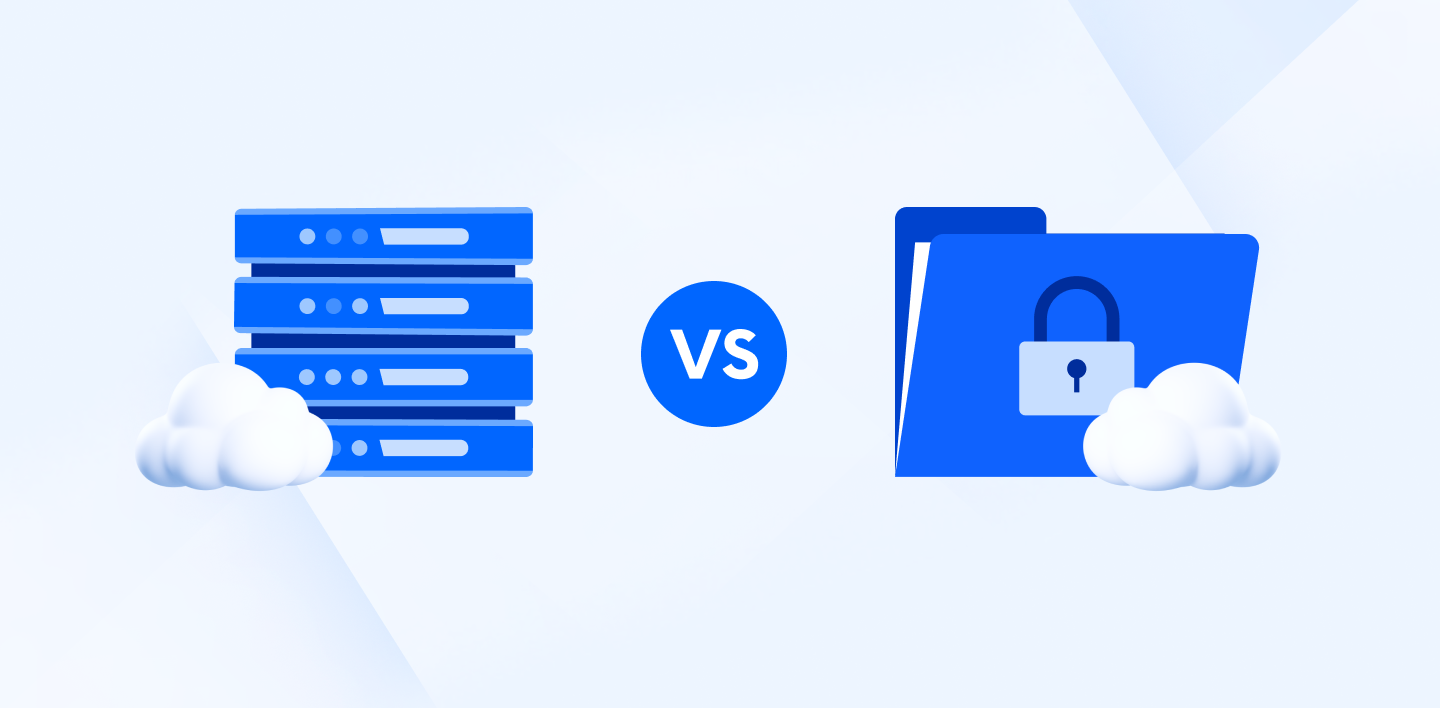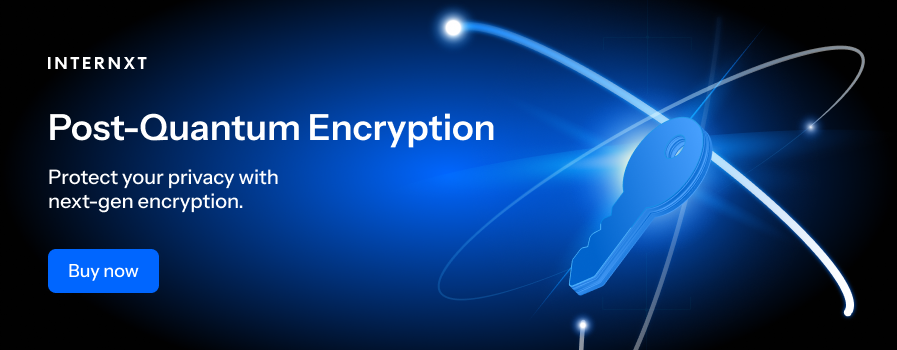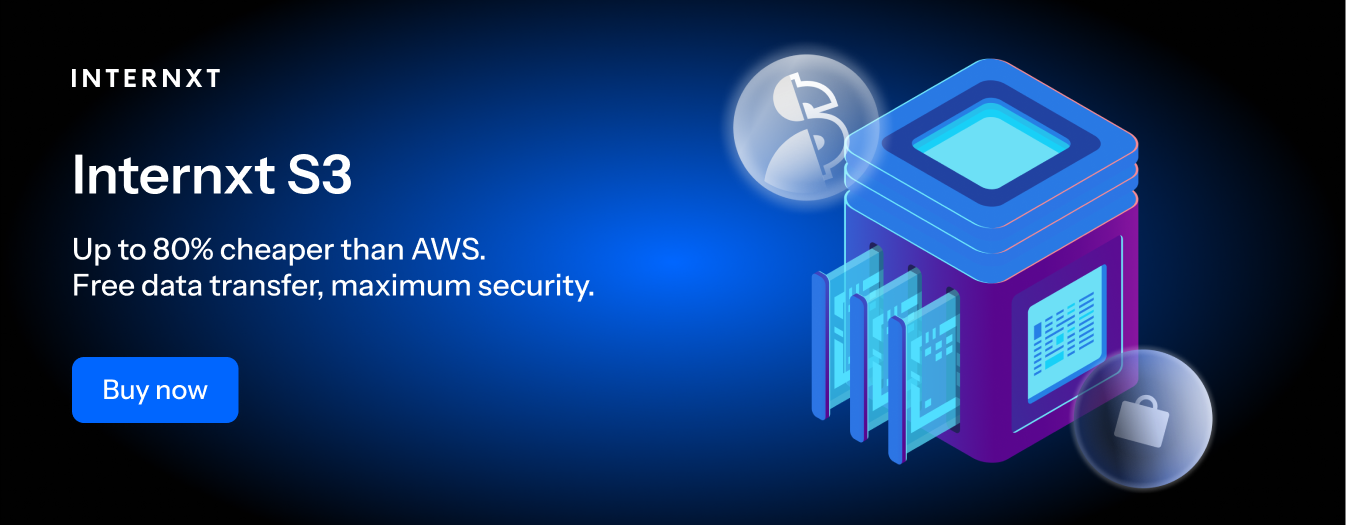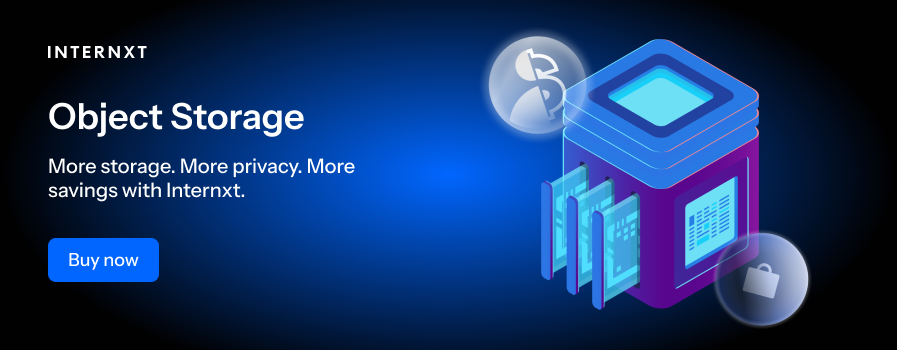NAS vs. Cloud Storage: Which One is Best for Business?

All businesses need a data management system to function efficiently and ensure information is organized, accessible, and secure. It also helps companies to comply with regulations and allows employees to access data from anywhere.
Although cloud storage is the mainstream storage option for families, businesses, and personal use, NAS storage is an option many companies are choosing due to more control over where data resides.
Throughout this article, we will explain the differences between NAS vs. cloud storage, the pros and cons of NAS storage, how it works, and finally, the benefits of choosing NAS storage for your storage needs over traditional cloud storage.
First, we will explain what NAS storage is so you can decide whether it's the right storage option for your business.
Table of contents
- What is NAS storage, and how does it work?
- NAS vs. cloud storage: what is the difference?
- NAS vs. cloud storage features comparison
What is NAS storage, and how does it work?
NAS, or network-attached storage, is a file storage system that allows multiple users to store and access data from a centralized disk capacity. NAS consists of multiple hard drives, and more can be added for greater storage capacity, which can be used for archiving and backups.
Unlike RAM, Random Access Memory, which is temporary memory used for active tasks, NAS provides long-term storage that keeps data safe and accessible over the network.
NAS storage is accessed on a local area network (LAN) via an ethernet connection, so files are accessed through a browser or app. Each NAS resides on the LAN as an independent network node and is identified with its own IP address.
You can use NAS storage to store any kinds of files, including videos, photos, games, programs, legal documents, and more.
Common use cases for NAS storage include:
- Share and access files among multiple users or devices on a local network.
- Automate backups for personal or business data to prevent data loss.
- Store and stream videos, music, and photos to your TV, computer, or smartphone.
- Access your files in the cloud without relying on third-party providers.
Regarding NAS vs. cloud storage, NAS offers more options for smaller to larger data management needs. These are the different NAS devices you can choose from:
- Home NAS system
Home NAS systems can be used for personal use for your media collection, streaming, or backups and offer up to 12TB of file storage. You can then purchase hard drives or SSDs separately to customize your setup to meet your needs best.
2. NAS for small businesses
Small businesses will likely have more needs for their file storage. As a result, this kind of use case for NAS storage will require additional features such as access controls, stronger encryption, and support for accessing and sharing folders between users.
NAS devices for this use will cost around $1000 for a minimum of 24TB.
3. Enterprise NAS
Enterprise NAS systems offer even more security control, performance, and storage for lard-scale data needs. Therefore, they are commonly used in data centers and support thousands of simultaneous connections.
NAS vs. cloud storage: what is the difference?
Initially, choosing local storage vs cloud storage appear to offer the same kind of storage, the main difference between NAS vs. cloud storage is data location and control. NAS stores data locally on your hardware, whereas the way cloud storage works typically relies on third-party servers to host the data.

Many prefer NAS for their storage as it gives users full control over their data; they don’t have to rely on cloud storage to host their data on external servers because they own the device where the data is hosted.
In summary, choosing NAS vs. cloud storage often involves data location and control. Many users are concerned about data collection or other privacy concerns from companies like Google Drive. Choosing to host from their own NAS system prevents these issues.
If you still want a cloud storage service that offers maximum security and privacy for your files and to store large-scale data, companies like Internxt offer end-to-end encrypted S3 storage for a scalable, secure, and affordable method to store unlimited amounts of data.
NAS vs. cloud storage features comparison
To understand the differences between NAS and cloud storage, we will examine each service's offerings and the pros and cons of these types of cloud storage to help you choose the best one for your needs.
Cost and return on investment
NAS storage may appeal to larger businesses that can afford the initial upfront cost of setting up a NAS system or those who use a hybrid cloud storage approach to data management. This avoids the subscription charges or hidden fees from other cloud providers, giving them a one-time payment and potential savings in the long term.
For individual use, NAS storage can be expensive, depending on the size of the data you want to store. However, the appeal for individual users is that you have full control and ownership of the device, giving you ownership of your data and total control over the security of your files.
Security
Security for NAS storage and in the cloud work in similar ways, the difference being that NAS requires additional setup, tools, and maintenance to ensure files remain secure. NAS will require a team of experts to ensure security is maintained and the necessary access controls are implemented.
Cloud storage offers end-to-end encryption, 2FA, and other controls, which all come as standard with the provider, and they handle the infrastructure while the data owner secures the data.
However, not all cloud storage offers the same security, with many people choosing alternatives to Big Tech companies like Google Drive in favor of Internxt’s zero-knowledge encrypted cloud storage that doesn’t hold the encryption keys to your data.
Only you hold the keys to your files, meaning nobody else can access your files without permission, offering a higher level of security and more control over the privacy of your files.
So, if you’re considering NAS vs. cloud storage and don’t want the upfront costs of NAS but want the same security, Internxt offers the best security and privacy of your files with its business, family, or subscription plans.
Backup
Endpoint backup is crucial to protecting data to avoid ransomware, loss, or corruption. Cloud storage backups store multiple versions of your files across servers for increased redundancy to ensure you can always access your files in case of accidental data loss, natural disasters, or cyberattacks.
Nas storage relies on on-premises syncing and backups of files on physical devices and may be more prone to hardware failure, theft, or other events such as fires, which would lose your data forever.
Setup
Cloud storage plans, such as Internxt for Business or S3 storage, require very little setup or technical knowledge, as everything is handled on the cloud provider side, including the backend infrastructure, server maintenance, software updates, and security.

NAS will require deeper technical knowledge during setup, as the hardware must be configured with compatible hard drives and set up to the local network. From there, additional configurations must be applied for remote access and data redundancy, and the software must be regularly monitored and updated.
Additionally, if you want to enable remote access or cloud-like features, you need to handle network configurations, firewalls, and security.
Although this setup requires more investment in time and money, the benefits of setting up NAS vs. cloud storage appeal to users or businesses that demand full control over their data.
Maintenance
Once you are set up in the cloud, there is very little to do regarding maintenance, as the provider handles and manages the data architecture to manage your files.
In contrast, choosing NAS will be more demanding, and you must continuously monitor the health of your hard drives to prevent performance issues while accessing the cloud, monitor backups, and update the firmware to prevent hackers from exposing vulnerabilities in the system.
Scalability
Moving on to scalability, many cloud storage providers will have a limit on the amount of storage offered, which may not suit the needs of enterprises holding large data lakes or warehouses.
Although traditional cloud storage is easier to scale to meet business demands, the limited storage may not be suitable for bigger businesses.
Having said that, the ease of scalability in cloud storage is advantageous to smaller businesses or freelancers. Even with Internxt S3 storage, you can scale your storage more easily at a fixed cost and increase storage when required. It is a cheaper option than other S3 providers.
It is possible to scale NAS storage by adding more drives; it is a more manual process that includes installing additional hardware and managing the system configurations. Upgrading your NAS storage, therefore, will require more resources, planning, and money to ensure it is done correctly.
NAS vs. Cloud storage: which one should you choose?
When considering NAS vs. cloud storage, there are many factors to consider, such as:
- The scale of your business
- Technical requirements
- Size of your team
- Resources
- Budget
- Future storage needs
However, the advantages of NAS storage can also be drawbacks for many, and the convenience and ease of use from personal cloud storage may work better for most small businesses needing cloud storage and a secure platform they can trust with their data, like Internxt business plans.

Furthermore, many enterprise users value services like Internxt S3 object storage as it offers secure, fast access to data from objects stored in buckets, ensuring businesses can access and store data easily at a fixed rate of €7/TB/month, with zero data transfer fees.
Finally, if your business is researching a hybrid cloud solution, both NAS and Internxt can help you fully control your data with advanced encryption and access controls to ensure your data can stay safe against data breaches.
To join Internxt, simply visit our website and choose from a business Standard or Pro plan for up to 100 users and 2TB of storage. Or, visit our object storage plans and choose the amount of cloud storage for your business needs to manage data effectively and securely.
Get NAS support with Internxt
Internxt now offers NAS support for Synology and QNAP for all Ultimate or lifetime plans, offering the best of both worlds of Internxt's Drive privacy and security, combined with your NAS device.
Learn more about NAS support with Internxt from our website at https://blog.internxt.com/internxt-nas/

